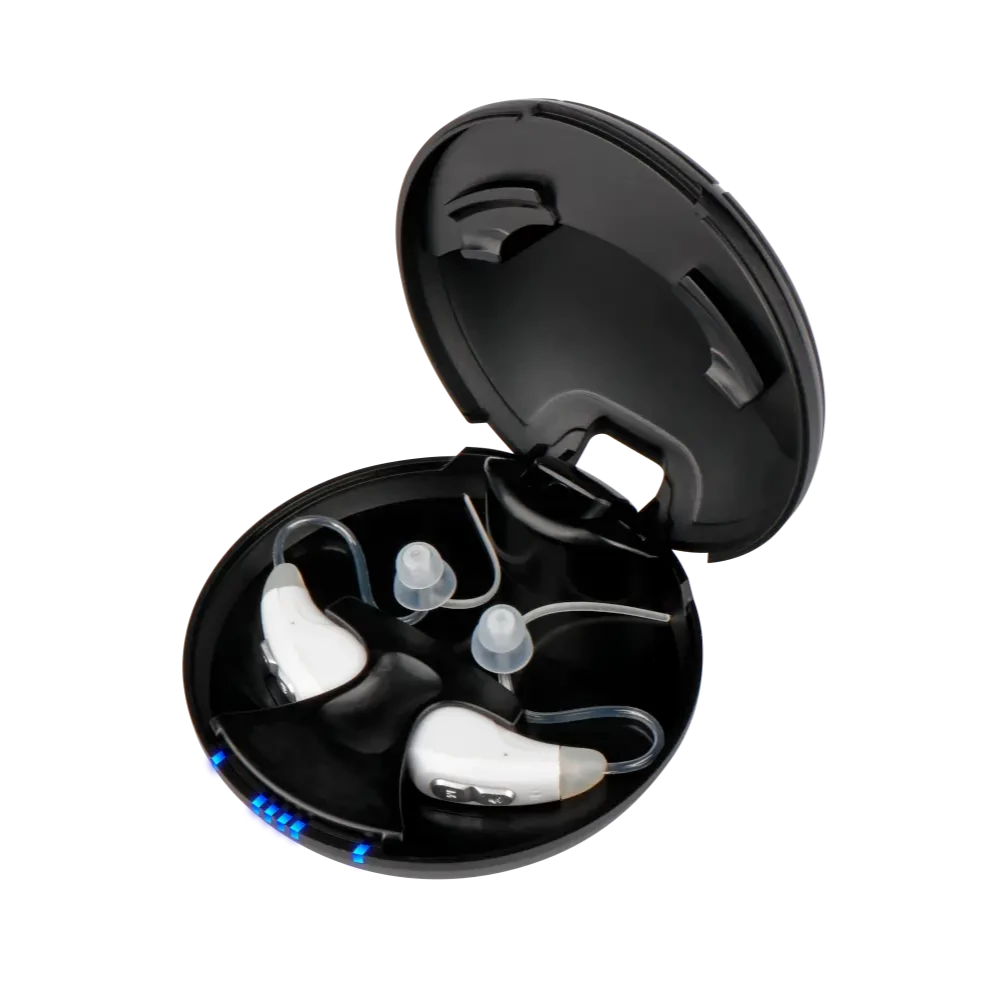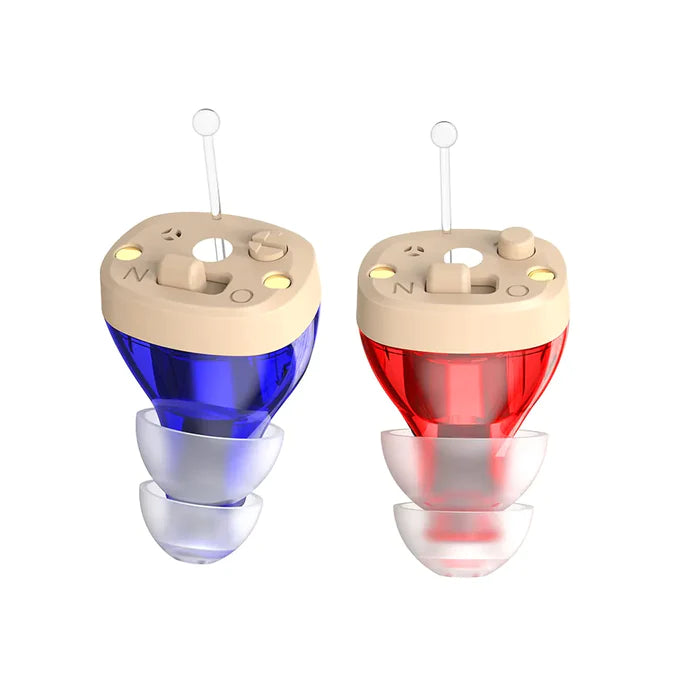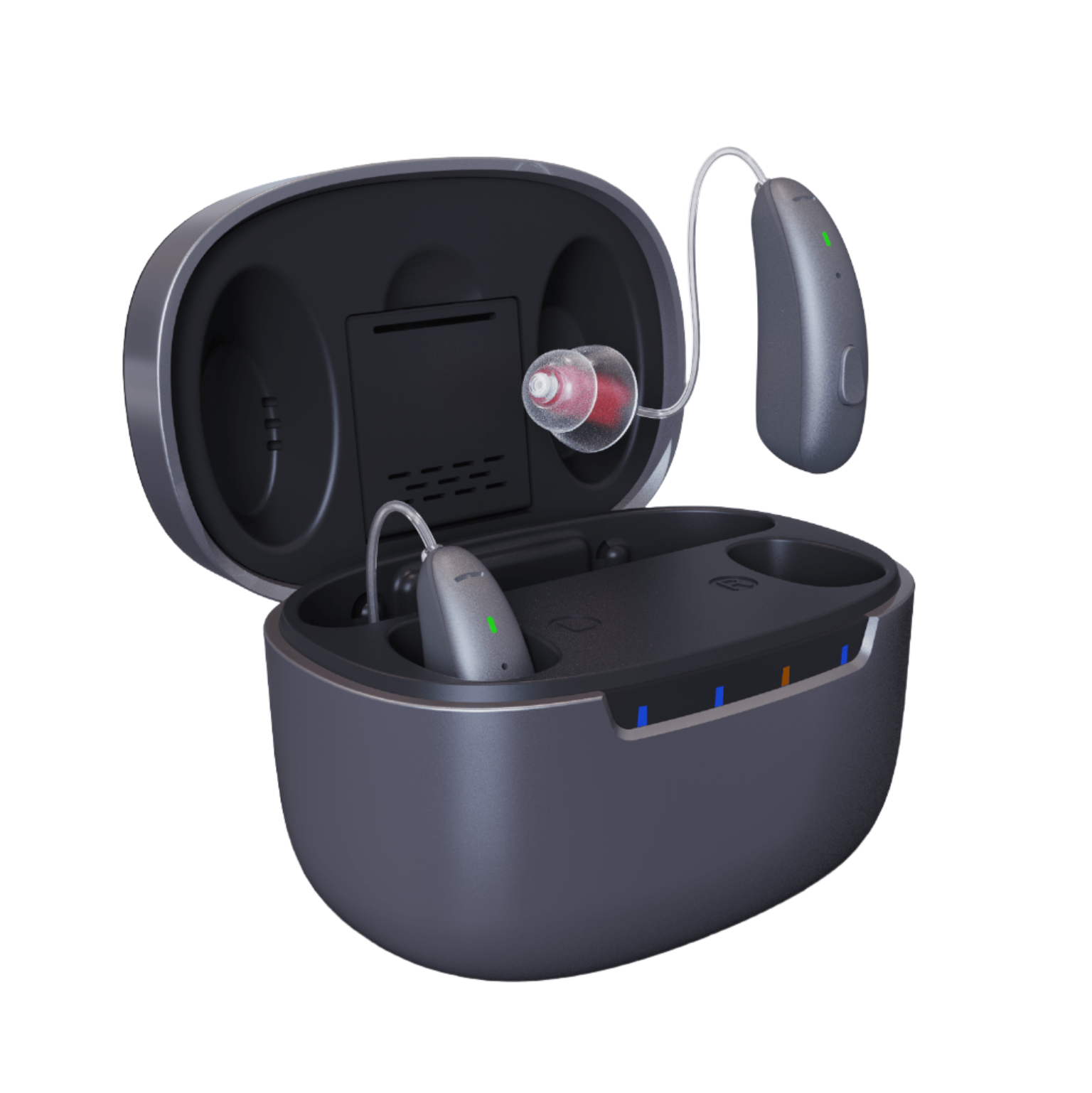A helpful guide to figuring out how Medicare covers hearing aids
Hearing loss is a common health problem, especially for people over the age of 65. It can be hard for people in this situation to understand insurance coverage, especially Medicare coverage for hearing aids. This piece aims to shed light on this subject by giving a full and detailed guide to how Medicare covers hearing aids.
Learn about Medicare and how it works.
Medicare is a government health insurance program for people 65 and older, but some younger people with certain disabilities can also get coverage through it. Medicare benefits is broken up into different parts that cover different types of health care:
Part A of Medicare pays for hospital stays, care in a hospice, and some home health care.
Medicare Part B pays for some doctor visits, care outside of the hospital, preventive care, and medical equipment.
Medicare Part C, also called Medicare Advantage, is an alternative to Original Medicare (Parts A and B). These are private health plans that usually come with extra perks.
Prescription drugs are covered by Medicare Part D.
It's important to understand these parts because each has an effect on hearing health care.
Hearing aids are paid for by Medicare
Parts A and B of traditional Medicare do not pay for hearing aids or tests to fit them. This can be hard for people who need these devices because hearing aids are often a big investment. But there may be hearing health perks in some parts of Medicare.
Medicare Part B
Medicare Part B doesn't pay for hearing aids, but it does pay for diagnostic hearing tests that your doctor orders if they are needed for a medical evaluation, treatment, or a disease that could cause hearing loss. But if the test shows that you need hearing aids, the cost of the hearing aids is not paid.
Medicare Advantage (Part C): Medicare Advantage Plans, or Medicare Part C, may give more hearing benefits. Private insurance companies that are okayed by Medicare offer these plans. They cover everything Original Medicare does, except for hospice care, which is still covered by Part A. They often include extra benefits like care for your eyes, teeth, and ears.
The benefits for hearing that come with Medicare Advantage plans can change a lot from one plan to the next. Some plans may cover hearing aids, while others may give a certain amount of money every few years to help pay for hearing aids. Others may offer discounts on the cost of hearing aids or only cover certain types of hearing aids. So, if you're thinking about getting a Medicare Advantage Plan, you should read the fine print and ask if they cover hearing aids.
Medicare Supplement Insurance (Medigap)
Medigap, which is short for Medicare Supplement Insurance, is another choice to think about. These are private insurance plans that help pay for some of the costs of health care that Original Medicare doesn't cover, such as copayments, coinsurance, and deductibles. But it's important to remember that Medigap plans sold after 2005 don't cover hearing aids.
How to Get Hearing Aids Covered by Medicare
If you have Medicare and need hearing aids, you can do the following:
Review Your Plan: If you have a Medicare Advantage Plan, make sure you know how hearing aids are covered by your plan. Most of the time, you can find this information in the "Evidence of Coverage" paperwork for the plan.
Consult Your Audiologist: Talk to your audiologist about how much different hearing aid types cost and what they can do for you. They can help you find hearing aids that fit your budget and your wants.
Check out these other resources: Some state programs, non-profit groups, and manufacturers offer help paying for hearing aids or discounts on them. Your neighborhood health department or audiologist can tell you more about these programs.
In the end, hearing aids are not covered by Original Medicare, but some Medicare Advantage Plans may cover some or all of the cost. The details can be very different, so it's important to understand how your plan works. Because of this, if you're thinking about switching from Original Medicare to a Medicare Advantage Plan, make sure to think about all the costs and perks. Always talk to a health care professional for help that is specific to your needs and situation.
Hearing loss is a common health problem, especially for people over the age of 65. It can be hard for people in this situation to understand insurance coverage, especially Medicare coverage for hearing aids. This piece aims to shed light on this subject by giving a full and detailed guide to how Medicare covers hearing aids.
Learn about Medicare and how it works.
Medicare is a government health insurance program for people 65 and older, but some younger people with certain disabilities can also get coverage through it. Medicare benefits is broken up into different parts that cover different types of health care:
Part A of Medicare pays for hospital stays, care in a hospice, and some home health care.
Medicare Part B pays for some doctor visits, care outside of the hospital, preventive care, and medical equipment.
Medicare Part C, also called Medicare Advantage, is an alternative to Original Medicare (Parts A and B). These are private health plans that usually come with extra perks.
Prescription drugs are covered by Medicare Part D.
It's important to understand these parts because each has an effect on hearing health care.
Hearing aids are paid for by Medicare
Parts A and B of traditional Medicare do not pay for hearing aids or tests to fit them. This can be hard for people who need these devices because hearing aids are often a big investment. But there may be hearing health perks in some parts of Medicare.
Medicare Part B
Medicare Part B doesn't pay for hearing aids, but it does pay for diagnostic hearing tests that your doctor orders if they are needed for a medical evaluation, treatment, or a disease that could cause hearing loss. But if the test shows that you need hearing aids, the cost of the hearing aids is not paid.
Medicare Advantage (Part C): Medicare Advantage Plans, or Medicare Part C, may give more hearing benefits. Private insurance companies that are okayed by Medicare offer these plans. They cover everything Original Medicare does, except for hospice care, which is still covered by Part A. They often include extra benefits like care for your eyes, teeth, and ears.
The benefits for hearing that come with Medicare Advantage plans can change a lot from one plan to the next. Some plans may cover hearing aids, while others may give a certain amount of money every few years to help pay for hearing aids. Others may offer discounts on the cost of hearing aids or only cover certain types of hearing aids. So, if you're thinking about getting a Medicare Advantage Plan, you should read the fine print and ask if they cover hearing aids.
Medicare Supplement Insurance (Medigap)
Medigap, which is short for Medicare Supplement Insurance, is another choice to think about. These are private insurance plans that help pay for some of the costs of health care that Original Medicare doesn't cover, such as copayments, coinsurance, and deductibles. But it's important to remember that Medigap plans sold after 2005 don't cover hearing aids.
How to Get Hearing Aids Covered by Medicare
If you have Medicare and need hearing aids, you can do the following:
Review Your Plan: If you have a Medicare Advantage Plan, make sure you know how hearing aids are covered by your plan. Most of the time, you can find this information in the "Evidence of Coverage" paperwork for the plan.
Consult Your Audiologist: Talk to your audiologist about how much different hearing aid types cost and what they can do for you. They can help you find hearing aids that fit your budget and your wants.
Check out these other resources: Some state programs, non-profit groups, and manufacturers offer help paying for hearing aids or discounts on them. Your neighborhood health department or audiologist can tell you more about these programs.
In the end, hearing aids are not covered by Original Medicare, but some Medicare Advantage Plans may cover some or all of the cost. The details can be very different, so it's important to understand how your plan works. Because of this, if you're thinking about switching from Original Medicare to a Medicare Advantage Plan, make sure to think about all the costs and perks. Always talk to a health care professional for help that is specific to your needs and situation.







